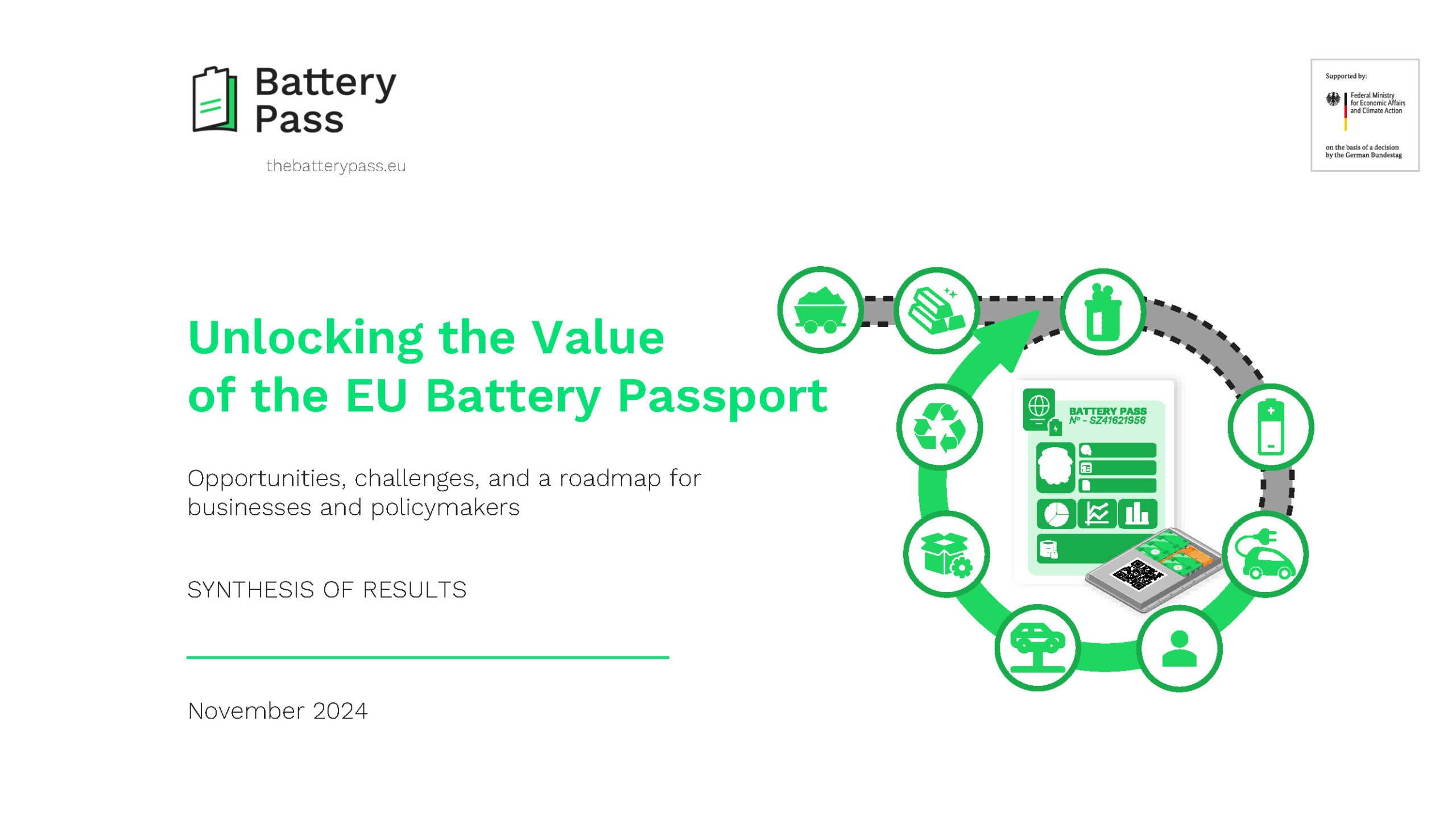A new study by the Battery Pass consortium, led by Systemiq, highlights the critical role of battery passports in driving sustainability, efficiency and competitiveness across the battery value chain.
The EU battery passport is a tool for digital information transfer, designed to enable more informed decisions and efficient practices in the battery value chain. The first digital product passport (DPP) to be introduced in Europe, it will be mandatory from February 2027.
The study was first released in April and has been updated with new insights and practical recommendations for businesses and policymakers alike, detailing how battery passports provide clear benefits – from improved recycling efficiency and reduced costs, to increased transparency and sustainability. However, it also calls attention to two primary challenges: the substantial implementation efforts required (particularly for SMEs) and remaining regulatory uncertainties around data standardisation.
What businesses can do now
To fully capture the value offered by battery passports, businesses should:
- Mitigate regulatory risks associated with compliance requirements by establishing their operational readiness for implementation.
- Secure competitive advantage by identifying strategic business opportunities within the battery passport framework.
- Tackle four strategic implementation decisions on which no-regret actions to start immediately, which parts of the battery passport to build in-house or outsource, whether to limit efforts to compliance or aim for greater business value, and how to integrate the passport into processes like ERP systems to maximise its impact.
These steps will apply differently to the economic operators that are responsible for the battery passport, and the providers that will contribute to data sharing along the complex value chains. Despite differences, these businesses should ideally align their preparation across the value chain.
In addition, both economic operators and data providers should consider evaluating traceability systems in demonstrators to enable another potential battery passport use case: efficient upstream data exchange and reporting. A traceability system improves data credibility and addresses the substantial data management effort described earlier.
What policymakers can do now
To enable maximum battery passport value, policymakers should:
- Resolve regulatory uncertainties quickly, such as finalising data attribute standardisation as well as key definitions regarding the technical system.
- Enable additional use cases by endorsing a “beyond regulation” section to establish the passport as a B2B tool. This includes facilitating data aggregation across passports to provide market insights, industry benchmarks, and information for policy design, and integrating battery passports into deregistration and export processes to increase secondary material availability, potentially fulfilling 5-20% of projected primary European material demand by 2045.
- Take support action to overcome implementation efforts, of battery passports and further DPPs especially for SMEs, by creating clarity and support (e.g. a European test-bed), ensuring interoperability, leveraging science and industry collaboration, and maintaining flexibility to adapt to insights.


